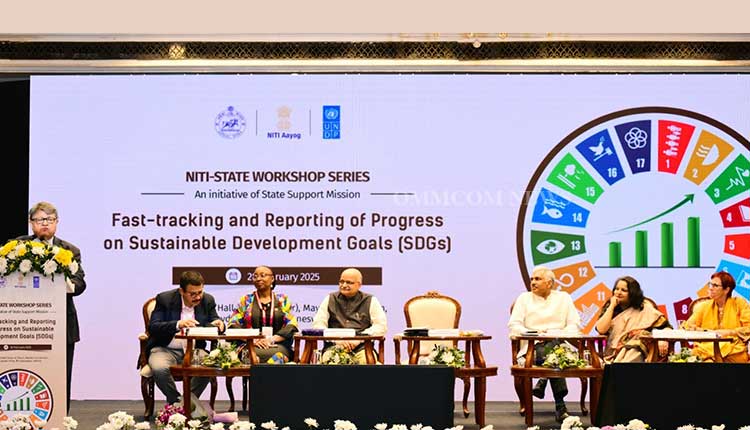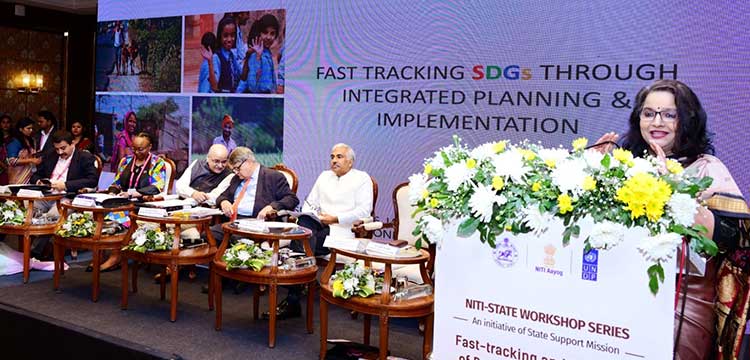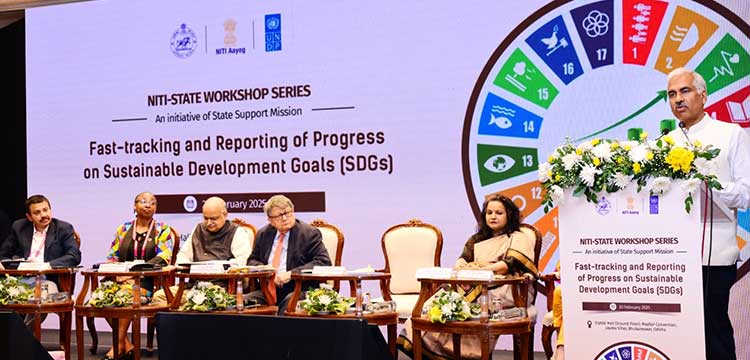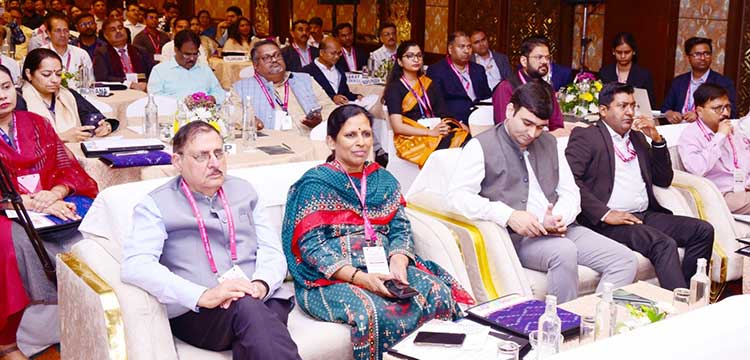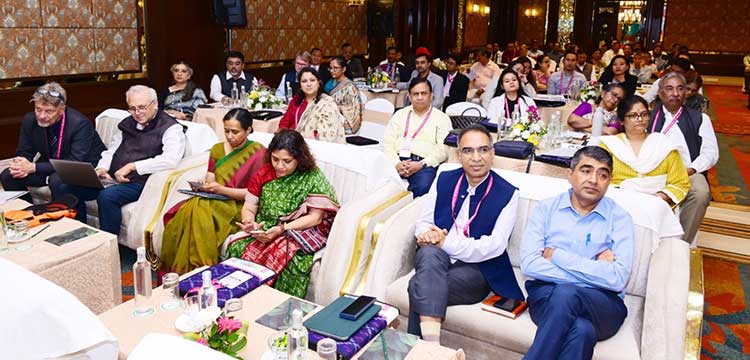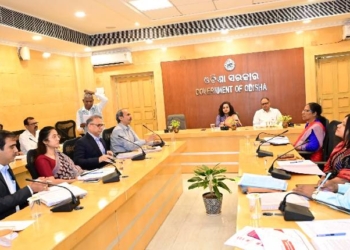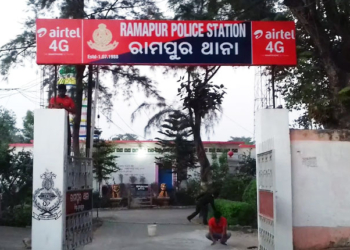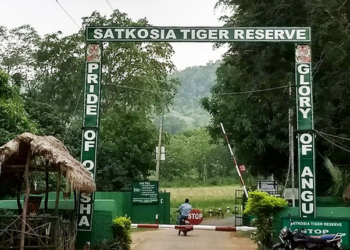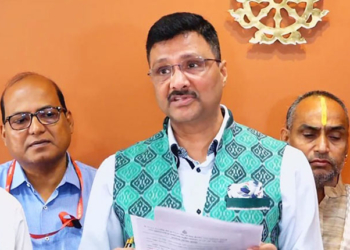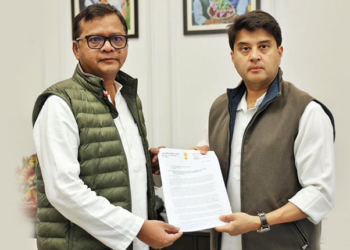Bhubaneswar: A national workshop on Fast-Tracking and Reporting Progress on Sustainable Development Goals (SDGs) was held at Mayfair Convention in Bhubaneswar on Thursday. The workshop was jointly organized by the Government of Odisha in collaboration with NITI Aayog, under its State Support Mission, and UNDP.
Key policymakers, senior government officials, and experts from various States and Union Territories participated in this one-day event to share insights, learnings, and strategies for accelerating SDG implementation through integrated planning, financing, and monitoring approaches.
Delivering the keynote address, Suman Bery, Vice Chairman of NITI Aayog, emphasized the urgent need for an evidence-based, multi-stakeholder approach to bridge development gaps, improve governance, and mobilize sustainable financing for inclusive growth.
BVR Subrahmanyam, CEO of NITI Aayog, highlighted India’s significant progress in SDG implementation, including poverty reduction and localization efforts. He urged States and Union Territories to foster knowledge-sharing for a greater collective impact.
Chief Secretary of Odisha, Manoj Ahuja, in his inaugural address, provided an overview of Odisha’s key SDG achievements. He emphasized the role of SDGs in realizing Viksit Odisha @ 2036 and Viksit Bharat @ 2047, stressing the importance of data-driven SDG localization and decentralized governance for accelerated development.
In her insightful presentation, Anu Garg, Development Commissioner-cum-Additional Chief Secretary to the Government of Odisha, shared key initiatives undertaken for SDG implementation and monitoring in Odisha. She underscored the importance of integrated planning, execution, and evaluation in fast-tracking SDG progress.
The workshop began with a welcome address and context setting by Rajib Kumar Sen, Senior Advisor (SDGs), NITI Aayog.
Speaking at the event, Dr. Ulrike Reviere, Country Director, GIZ India, elaborated on the challenges and opportunities in accelerating SDG implementation across various states.
Angela Lusigi, Resident Representative, UNDP India, emphasized the need to strengthen institutional frameworks and develop robust monitoring mechanisms to drive SDG progress into transformative action.
The first technical session, moderated by UNDP, focused on Strengthening SDG Localization. Experts deliberated on innovative approaches and key initiatives adopted by states such as Uttarakhand, Himachal Pradesh, Kerala, Bihar, and Jharkhand to institutionalize SDGs at the local government level.
Officials from NITI Aayog and the Capacity Building Commission presented the objectives and initiatives under the State Support Mission and Mission Karmayogi, respectively.
A separate session on Financing the SDGs, moderated by the Ministry of Finance, Government of India, explored best practices in resource mobilization and the importance of public-private partnerships to enhance financial allocation and ensure sustainability of SDG initiatives. The session featured state-specific learnings from Haryana, Odisha, Meghalaya, and Rajasthan, particularly on SDG budgeting processes.
The Voluntary National Review (VNR) session facilitated knowledge-sharing among experts from the UNRCO, Civil Society Organizations, think tanks, and the private sector, focusing on India’s upcoming 3rd VNR and insights from previous reviews.
The national workshop concluded with key takeaways, reaffirming the Government of India’s commitment to evidence-based policymaking and collaborative efforts by the States in advancing the SDG agenda to meet the 2030 goals.




